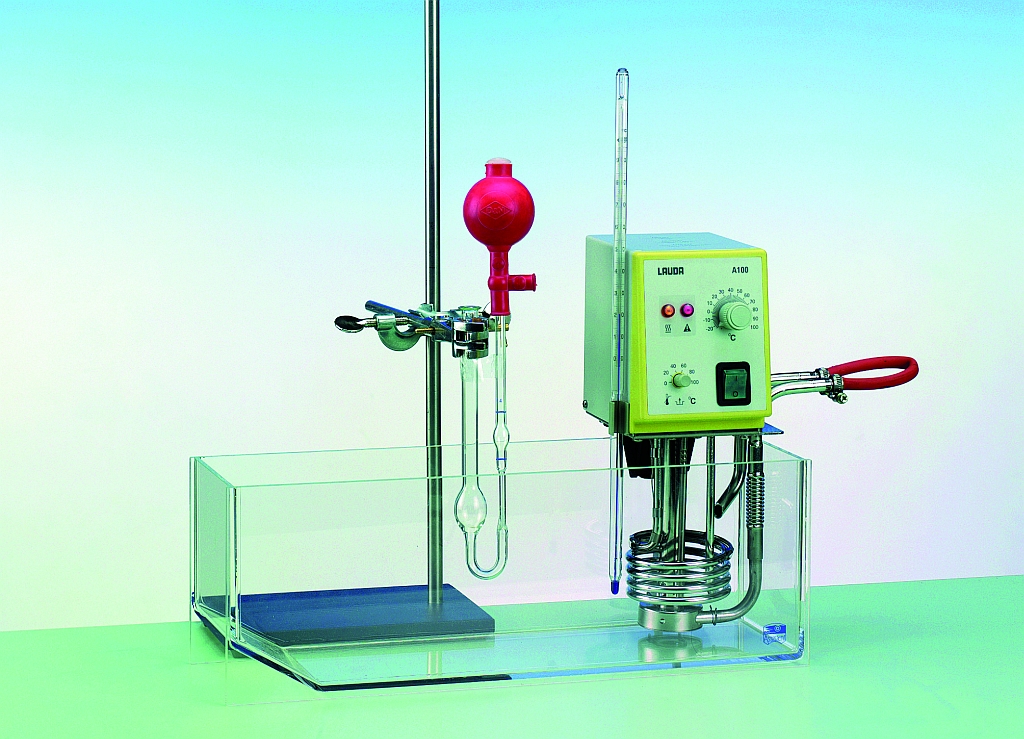Principle
The viscosity of a liquid is effectively determined by the strength of the intermolecular attractive forces. In the case of solutions, the viscosity of the solvent can alter significantly depending on the type and concentration of the solute. Due to their size, macromolecules have a very considerable impact on the viscosity of the solvent. Viscosity measurements can be used to estimate the mean molecular mass of a macromolecule if something is known about its conformation.
Benefits
- Determination of an important parameter of rheology
- For both demonstration and student experiments
Tasks
- Use a thermostatted capillary viscometer to measure the viscosities of solutions of polystyrene in toluene over a range of five polymer concentrations.
- Determine the instrinsic viscosity and from that estimate the molecular weight (relative molecular mass) of the polymer in this solution.
Learning objectives
- Viscosity of liquids
- Ostwald capillary viscometer
- Poiseuilles's equation
- Macromolecules
- Mass average and number average molecular weights
- The Mark-Houwink equation
- Alternative techniques e.g. osmosis
- Sedimentation (ultracentrifuge methods)
- Light scattering
Necessary accessories:
This experiment requires a precision balance
Precision balance, Sartorius ENTRIS® II, 620 g : 1 mg (49311-99)
Necessary accessories
You cannot use the item without these accessories!
